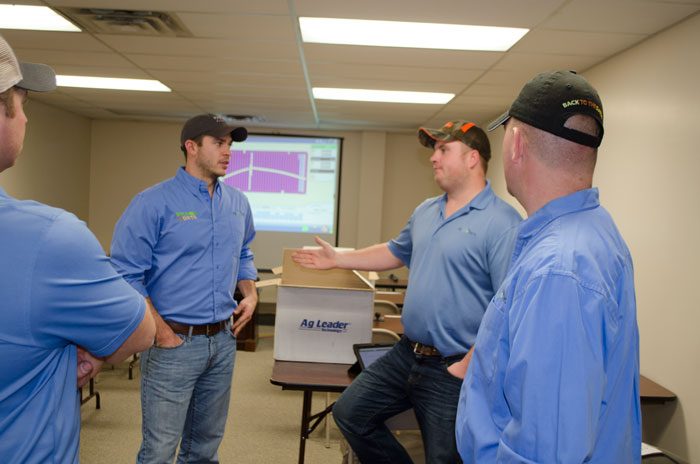Precision farming has emerged as a vital industry within agriculture and one that may very well hold the long-term keys to higher yields with greater conservation. Along with all of the excitement and buzz this industry generates comes a steady flow of investment dollars from companies keen on developing their own precision farming capabilities to ensure their continued relevance and competitive edge in agribusiness.
But with all promising advancements technology is making, there is still one barrier that continues to hinder progress. People. Simply put, technology is worthless without people. There is no amount of technological automation and autonomy that will ever exclude the need for human interface. Therein lies precision technology’s greatest obstacle.
Which came first the chicken or the egg? Which came first the technological marvel or the person who knows how to make it work? Technology is as dependent on people as people are on technology.
This begs the question “Why are companies willing to invest thousands of dollars into technology, but hesitate to invest the same amount of money into people who can make the technology work?” Isn’t making technology work the goal? How many countless investments in technology have been wasted because the knowledge to make it work was lacking?
Think of all the un-calibrated planter or yield monitors out there. The farmer buying an RTK signal, but who is unknowingly operating on WAAS. Lost data or bad data that doesn’t matter because it is unusable. Farmers are desperate to find somebody, preferably a human, to show them how to make technology work for them.
Hence, the rise of the precision farming specialist. Originally, they were the in-house computer geeks/GPS technicians who were largely ignored by their peers. They are now rapidly ascending into being some of the most important people in all of modern agriculture. These uniquely gifted people are the perfect union of a technologically minded person with the heart of an agronomist and a detective’s passion for figuring out the truth. And what do these valuable specialists desire in their own careers above all else? A future.
“Career progression is emerging as one of the greatest obstacles leading experienced precision agriculture people to leave their beloved industry....”
It seems ironic that the technology industry that lives in the future fails to provide a future for its own people. Career progression is emerging as one of the greatest obstacles leading experienced precision agriculture people to leave their beloved industry.
To put it simply, they do not know which way is up. Think about it for a moment. A salesperson can become a sales manager who then can become a store manager who might one day become a general manager. But where does an experienced precision farming specialist go in his or her career?
Most don’t see a future for themselves in precision agriculture so they leave and take their valuable skillsets to other positions or even other companies that offer them a clearer career path into the future.
What does the future look like for your people? Will they be doing the same things they are doing now in 5 years? Or, will they have opportunities to gain more responsibility and to apply themselves in new directions.
People want a path. They want to know they are on the right path and that path is leading them to somewhere they want to be. Pull back the curtain and show your people the future. Articulate a career path that clearly defines goals and awards accomplishments; a path that acknowledges their ambitions and increases their potential.
They seek a path that demonstrates that the company is as invested in them as they are in the technology they make work. People don’t always need a raise or a bigger office, but they always need to see into the future. They need to know that what they are doing is worth doing and where they are going is worth going to.
Happy people are always people full of hope for the future. And remember, advancements in precision technology always increase the need for advancements in people.




![[Technology Corner] Discussing AI’s Potential Impact on Service & Support](https://www.precisionfarmingdealer.com/ext/resources/2025/04/11/Discussing-AIs-Potential-Impact-on-Service--Support.png?height=290&t=1744385717&width=400)


